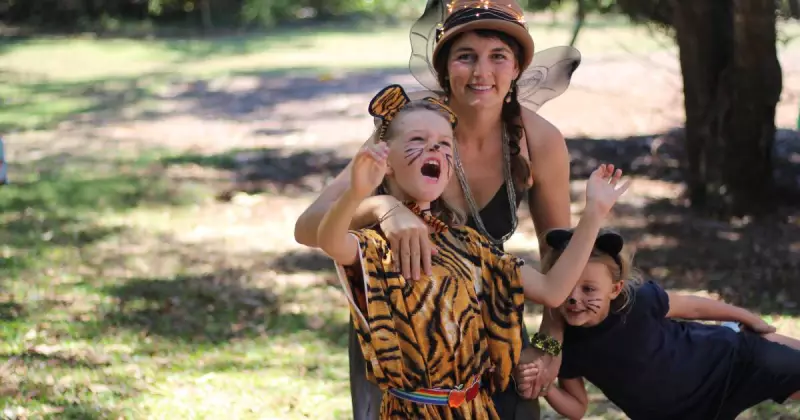
Australian children's author Zanni Louise has revealed how discussing complex, adult-themed topics with her young daughters has profoundly shaped their development and worldview. Drawing from her personal parenting journey and professional experience writing over 40 children's books, Louise advocates for engaging even the youngest children in meaningful conversations about life's big questions.
Real-Life Examples From the Family Table
From as early as two years old, Louise's children were grappling with significant concepts. Her youngest daughter repeatedly questioned the fate of a dead pigeon's offspring, demonstrating early empathy and concern for life cycles. At six, her other daughter pondered the philosophical limitations of human experience, wondering if others perceive the world completely differently.
By seven, her eldest daughter made the ethical decision to become vegetarian, declaring that "animals have feelings too." This moral reasoning extended to practical family dynamics when, at nine, she organized a democratic family meeting after hearing a Ted Talk, proposing a reasonable compromise about iPad usage that acknowledged both her desires and parental boundaries.
The Lasting Impact of Early Conversations
As the girls have matured, their dinner table discussions have expanded to include vaccination, politics, morality, and decision-making. "Involving the girls in chats as we question the world and our place in it has galvanised them to form their own sense of self," Louise explains. Both daughters have developed strong justice orientations, regularly standing up for siblings, friends, and even strangers, while demonstrating courage to dissent from group opinions when necessary.
Louise acknowledges her parenting hasn't been perfect—she regrets stopping read-aloud sessions too early and shortened craft hours prematurely—but she stands by the value of early philosophical discussions. The author witnessed children's capacity for complex thinking firsthand when researching her book about honesty, where kids as young as five offered nuanced, profound insights that surpassed her own understanding.
Practical Benefits for Modern Parenting
In today's media-saturated environment, where children encounter complex issues through various channels, Louise emphasizes that conversations provide essential tools: language to articulate thoughts, questioning skills, and perspective-taking abilities. By modeling active listening and admitting their own flaws and vulnerabilities, parents create spaces where children feel safe to make mistakes and grow.
Perhaps most importantly, these discussions serve as powerful connection points in increasingly fragmented communities. Louise notes there are rarely black-and-white answers to life's big questions, but opening conversations allows families to explore ideas together and support each other's growth. "We can listen. We can ask. And we can sit down together, and connect," she concludes, acknowledging that she herself has grown tremendously through these exchanges with her children.
Zanni Louise's new series, Handbooks for Little Humans, illustrated by Kim Drane and published by Affirm Press, continues this mission by providing resources for children aged three to eight to explore values and big ideas.





